World Pneumonia Day: 12 November, 2024
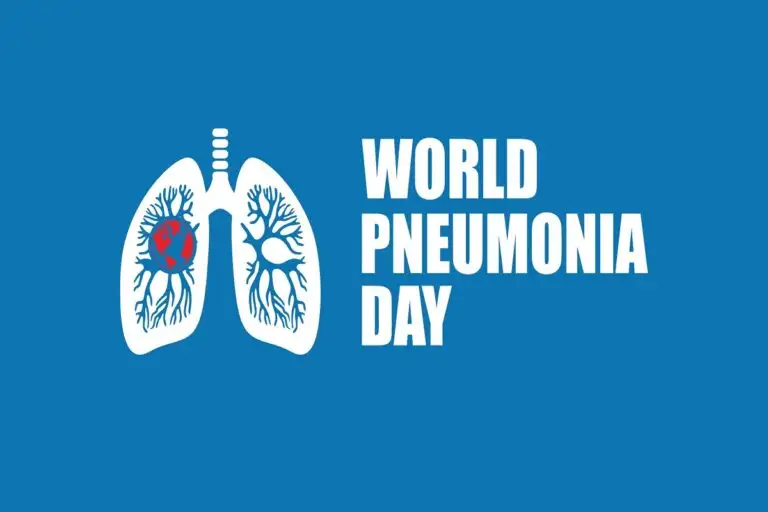
World Pneumonia Day is annually held on November 12 to raise awareness of pneumonia, promote prevention and treatment, and provide an annual forum for the world in the fight against pneumonia. The Theme of World Pneumonia Day 2024. Championing the fight to stop pneumonia will be the subject of World Pneumonia Day 2024. What is Pneumonia? An acute respiratory infection, pneumonia can affect your lungs severely and is usually caused by a viral or bacterial infection which causes an inflammatory response in the lungs. COVID can also lead to pneumonia which can cause serious damage to your lungs causing breathing issues. When we talk about walking pneumonia, it is basically the milder form of the disease and one doesn’t need hospitalization for it and can even do daily chores with ease as you have flu-like symptoms such as sore throat, chest pain, headache, etc. Walking pneumonia can spread through sneezing or coughs but it spreads more slowly than usual pneumonia. “If you have walking pneumonia that means it is in a mild form. This pneumonia is not severe. You must be aware that pneumonia is a lung infection leading to swelling of airways and the air sacs of the lungs get filled with mucus and other fluids. One can get a high fever and cough with mucus. If you have walking pneumonia, you will be able to do the daily chores with ease without even knowing that you have pneumonia. This mild form of pneumonia will not require hospitalization but regular pneumonia can be fatal and even lead to death. This mild form of pneumonia is generally seen in those with asthma, children, older people, and ones with chronic obstructive pulmonary disease (COPD). This type of pneumonia is commonly seen during winter,” says Dr. Sangita Chekker, Consultant Chest Physician, Wockhardt Hospitals, Mira Road. On the occasion of World Pneumonia Day (November 12, 2024) Dr. Chekker talks about the symptoms, causes, and treatment of this mild form of pneumonia. Symptoms of Walking Pneumonia Having a sore throat, chest pain, sneezing, headache, fatigue, cough, and chills will indicate that one has walking pneumonia. Causes of Walking Pneumonia It is mainly seen due to viruses, bacteria, and fungi. It is contagious and can spread from one person to another through sneezing without covering the mouth, talking, or even breathing near the person. Treatment of Walking Pneumonia The treating doctor will prescribe antibiotics to manage this condition. Even over-the-counter medications will be prescribed to help one get that much-needed relief from nasal congestion. Try to stay hydrated by drinking enough water so that the mucus becomes thin. Opt for warm fluids and use a humidifier at home. Dr. Sanggita ChekkerConsultant Chest PhysicianWockhardt Hospitals, Mira Road To book an appointment call: +918108101104 Source: https://www.hindustantimes.com/lifestyle/health/world-pneumonia-day-2022-what-is-walking-pneumonia-warning-signs-and-treatment-101668172891133.html
What is Bipolar Disorder? Types, Symptoms & Treatment

People with bipolar disorder will experience severe shifts in behavior, thinking, energy, and mood. The condition is more than just having good or bad moods. Bipolar disorder or manic-depressive mood disorder is a mental health problem that requires medical attention. It can lead to severe mood swings, lack of sleep, low energy, inability to think rationally, and changes in behavior too. Sometimes one may feel happy and energized for a few days and other times he/she may feel hopeless, sad, low, sluggish, and irritated for a few days/ months. Types, Signs And Symptoms: Bipolar I disorder: This includes episodes of Mania and Depression. The symptoms of mania are excessive spending, excessive talking, increased energy, grandiose thinking decreased need for sleep, and jumping from one idea to the next one. Bipolar II disorder: You will have a major depressive episode and at least one hypomanic episode (periods of milder manic episodes including being energetic, elated, or irritated moods). Cyclothymic disorder or Cyclothymia: A mild form of bipolar disorder where episodes of hypomania and mild depression may persist for at least two years. Other common red flags of mania in a bipolar patient are restlessness, poor judgment, impulsiveness, loss of appetite, getting distracted very easily, high sex drive, engaging in reckless behaviors, and making unrealistic plans. During depressive episodes, one will be forgetful, sad, talk slowly, have a low sex drive, lose interest in activities that he/she liked, have trouble sleeping and keeping focus and be unenergetic. Bipolar and related problems can also be seen to be associated with alcohol consumption, drug abuse, and conditions like stroke. Treatment: One with bipolar disorder will be suggested medication based on his symptoms: Can Bipolar Disorder Cause Pregnancy Complications? A large number of women with bipolar disorder have a healthy pregnancies. But some medications used to manage this disorder may have some effect on the baby in a few cases. Women with bipolar should talk to a mental health expert before getting pregnant. Know about the medication that you are taking and talk about its side effects with the doctor. Inform your doctor about conceiving plans beforehand so that medications can be adjusted. If one parent has bipolar disorder there is a 10 percent chance that their child might develop the illness, but one must remember that the overall lifetime prevalence of bipolar spectrum disorders is roughly around 3 percent. Dr. Sonal Anand, Psychiatrist, Wockhardt Hospitals To book an appointment call: +918108101104 Source: https://www.india.com/health/bipolar-mood-disorder-what-is-it-types-symptoms-treatment-and-does-it-cause-pregnancy-complications-5734885/
Mira-Bhayander Traffic Police Creates Awareness on Road Safety to Save Lives
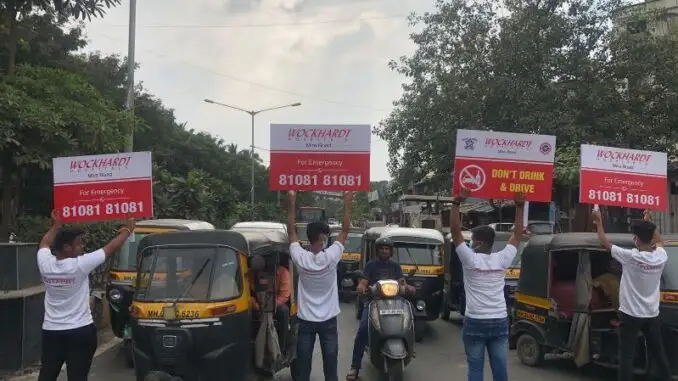
With an aim to create awareness towards road safety, Wockhardt Hospitals in Mira Road, and Mira-Bhayander Traffic Police jointly organized multiple activities to highlight the importance of road safety. Road safety is a prime concern as millions of people die in road accidents. In the majority of cases, accidents happen due to carelessness or lack of road safety measures. Many lives can be saved and injuries prevented by spreading road safety awareness on speeding, drinking, and driving, appropriate use of seatbelts, wearing helmets, mobile usage, etc. Thus, Wockhardt Hospitals in Mira Road, and Mira-Bhayander Traffic Police came up with unique initiatives to spread public awareness. Dr. Pankaj Dhamija, Centre Head, Wockhardt Hospitals, Mira Road said, “Road safety is neglected by people and they land in trouble. A large number of families have to bear the burden of the loss of their loved ones due to road accidents. It is need of the hour to educate people regarding road safety rules. Mira-Bhayander Traffic Police received stretchers from Wockhardt Hospitals, Mira Road which will be used for emergencies at accident-prone zones. Wockhardt Hospitals, Mira Road & Mira-Bhayander Traffic Police distributed pamphlets and stickers that had road safety messages to vehicle drivers including auto rickshaw drivers, motorcyclists, etc. A traffic signal campaign was organized wherein volunteers from the Wockhardt Hospitals, Mira Road along with Traffic Police displayed placards of road safety messages like ‘wear helmet’, ‘don’t drink and drive, ‘no phone while driving, and ‘follow traffic rule’, at prominent signals like Kashimira, Silver Park, S.K. Stone, Golden Nest, Maxus Mall, etc. They also distributed Emergency Pocket Booklet for the general public during the awareness campaign. “We are happy that Wockhardt Hospitals, Mira Road joined hands with us for this great initiative. We hope to spread the message of road safety as much as we can and urge people to adhere to all the traffic rules and regulations. We will ensure a safe journey for all those who travel by road,” concluded Traffic Police Mira Bhayander. To book an appointment call: +918108101104 Source: http://businessnewsthisweek.com/health/wockhardt-hospitals-mira-road-along-with-mira-bhayander-traffic-police-creates-awareness-on-road-safety-to-save-lives/
Asymptomatic Breast Cancer: How To Diagnose The Unaware Symptoms Of This Tricky Cancer

There are many women who won’t experience any typical symptoms and they will be known to have asymptomatic breast cancers. In such cases, the disease can metastasize meaning it will spread to other parts of the body and the treatment options become more invasive. Breast cancer is one of the common cancers that the majority of women suffer from. Even though breast cancer cases are rising at a rapid rate in the country, there is a lack of awareness regarding it. Moreover, there are many myths surrounding breast cancer and many women are embarrassed and afraid to speak about it openly. Now you will also be shocked to know that breast cancer may be present without any symptoms. Yes, you have heard us here. It can be called asymptomatic breast cancer. There are many women who will not experience any typical symptoms and they will be known to have asymptomatic breast cancers. In such cases, the disease can metastasize meaning it will spread to other parts of the body. Metastatic breast cancer is detected in the advanced stages where the treatment options are not much. Screening for Breast Cancer Did you know? Timely screening is the need of the hour to help you to detect this cancer early. Thus, women above 30 must speak to the doctor for a clinical breast exam that needs to be done on an early basis. Also, don’t forget to do breast self-examination from the age of 18 years and X-ray mammograms as suggested by the expert from the age of 40 years. Likewise, other tools such as breast ultrasound, MRI breast, CT, and PET scans can help in the detection of malignancies if any in the breast. The treatment will be initiated once the diagnosis is confirmed with a radio-pathological confirmation. When performing a self-examination, the ‘look’ and ‘feel’ are the two most important factors to consider. Any lumps in the breast, changes in contours, dimpling or bulging of the skin, swelling or nipple inversion, and any nipple changes such as position changes should be looked for. Any fluid discharge, especially if blood-tinged, or secretions from the breast should be regarded as a warning sign and should be reported to your healthcare professional immediately. Treatment of Breast Cancer It is based on the type, stage, and location of the tumor. One will be asked to opt for surgery, chemotherapy, radiation, and hormone therapy by the doctor. The doctor will decide what suits you the best. If detected early, one can save the breast and get breast cancer surgery done and have a good healthy, and hearty life. Dr. Aditi AgarwalConsultant Onco surgeon & general surgeonWockhardt Hospitals, Mira Road To book an appointment call: +918108101104 Source: https://www.india.com/health/asymptomatic-breast-cancer-how-to-diagnose-the-unaware-symptoms-of-this-tricky-cancer-5725288/
A 58-year-old Man With a Heart Attack And Stroke was Successfully Treated

A team headed By Dr. Nitin Kochar ( cardiac Surgeon) and Dr. Vishal Sawale ( Consultant Neurologist & Stroke Specialist ) at Wockhardt Hospital, Nashik successfully gave a new lease of life to a 58-year-old man with a heart attack and Brain stroke led to complete left-side paralysis. The patient who was on a ventilator & wasn’t able to walk, talk or eat has resumed his daily routine. Sanjay Bavsar, a 58-year-old resident of Nandurbar, Nashik was jolted out of his normal routine due to a massive heart attack in March. There was a triple vessel block and the patient was immediately admitted to Wockhardt Hospital for bypass surgery. Dr. Nitin Kochar, Consultant cardiovascular and thoracic surgeon at Wockhardt Hospital, Nashik said, “On arrival in an emergency, the patient had shortness of breath, chest pain, and confusion. His angiography revealed that his vessels were blocked. Then, the patient was advised of Coronary artery bypass graft surgery (CABG) due to acute myocardial infarction.” Dr. Vishal Sawale, Consultant Neurologist & Stroke Specialist at Wockhardt Hospital, Nashik said, “After the 2nd day of CABG, he suffered from a brain stroke which was a Posterior circulation ischaemic stroke, and his left side was 100% paralyzed. The blood vessels of his heart and brain were blocked simultaneously. The stroke was in the brainstem, he was on a ventilator, and comatose for 3 days. After 3 days he showed improvement but there was a swallowing problem, slurred speech and he couldn’t move an inch. A tracheostomy was done and he was put on Ryles Tube feeding as there was a risk of aspiration too. Emergency clot-busting medication was given to him. His condition started to improve gradually, and he can walk, talk and communicate properly. He took aggressive speech and physiotherapy to recover well. He was discharged after 15 days with a tracheostomy tube which was removed after 2 weeks as he was able to swallow. A stroke is devastating and the cases of it are rising at a rapid rate. Not treating promptly can also lead to permanent disability. A stroke happens to anyone, anywhere, and anytime. It is imperative to recognize the signs of stroke that are B.E.F.A.S.T (Balance Loss, Eyesight Blurring or Loss, Facial drooping, Arm weakness, Speech difficulties, and Time). So, timely treatment within the golden period can prevent brain damage by restoring circulation. He is following up with us for 2 months and has resumed his daily routine now.” “We were devastated knowing that my brother suffered a heart attack followed by a stroke. We were completely unaware of what exactly a stroke is and why it happens. It was an unknown entity to us. We were shocked to see my brother bed-bound who was otherwise active and cheerful. We felt helpless and sorry for his condition. But, we were determined to see him stand on his feet again and lead the life that he always wanted. We were fortunate to have received timely treatment at Wockhardt Hospital. We are thankful to Dr. Kochar & Dr. Vishal Sawale sir for taking limitless efforts to save my elder brother. Now, he can walk, sit, stand, talk, and eat with ease. I urge everyone to take timely intervention in case of a stroke to minimize its complications,” said the patient’s younger brother Devendra Bavsar. Source: https://newspatrolling.com/a-58-year-old-man-with-a-heart-attack-and-stroke-was-successfully-treated-at-wockhardt-hospital-nashik/
Diabetes patients Should Keep A Tab On Their Sugar Levels During The Festive Season

Diwali is around the corner and a majority of people with diabetes will gorge on sweets and snacks deep-fried in oil. There can be unhealthy indulgence during the festival season and diabetics will find it hard to control their cravings. But, it is imperative for the ones with diabetes to take utmost care of themselves and maintain blood sugar levels in the recommended range to stay healthy. In the below article, we tell you about some of the vital tips that can be helpful for those with diabetes. Do follow these tips and you will surely be able to seek benefit from the helpful advice given by your expert. Festival time can be tough for those having diabetes or high cholesterol. It is the time of fasting and feasting, and a majority of people tend to overindulge in sweets, namkeens, and other fried foods that can take a toll on their overall well-being. Yes, you have heard us here! Those tempting sweets, snacks, or namkeens made out of unhealthy oil can have a negative impact on your blood sugar levels. Artificial sugar sweeteners and flavors can lead to fluctuating blood sugar levels and steal your peace of mind. Try to follow these foolproof measures to keep your sugar levels in check during this festive season. Here are some important tips that individuals considering diabetes surgery should not miss: If traveling to meet your near and dear ones follow COVID-appropriate precautions.For Any Query Or If you need any additional input please call Dr. Sudarshana PatilConsultant Internal Medicine, & Critical CareWockhardt Hospitals, Nashik To book an appointment call: +918669998260
International Stuttering Awareness Day: 22 October, 2024
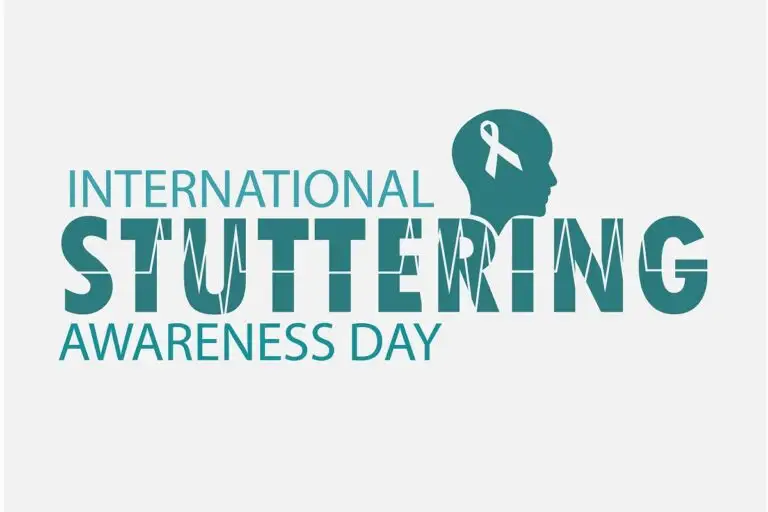
International Stuttering Awareness Day is an annual celebration held every year October 22. It was first held in the UK and Ireland, in 1998. The heart begins to beat more quickly and energy is produced in the body when we are feeling emotional, thrilled, or the need to express ourselves. As a result, some people experience stuttering or stammering issues, especially while speaking in front of many people. Stuttering opens up a whole new world of anxiety, fear, unfavorable feelings, and avoidance tactics. It is a speech disorder that can impact people of all ages, especially children. We’re revealing tips to stop stuttering on World Stuttering Awareness Day. You can also adhere to these tips to assist someone else. How to Stop Stuttering? Both biological and psychological factors contribute to stuttering. It is incredibly intricate, and everyone stutters differently. So far, there isn’t a perfect treatment for stuttering. However, with the use of speech therapy, you can learn to control or significantly overcome your stuttering. Health Shots got in touch with Dr. Ehteshaam Khatri, Audiologist and Speech Language Pathologist, Wockhardt Hospitals, Mira Road, Mumbai, to understand what triggers stuttering and how one can manage it. Risk Factors of Stuttering, According to Dr. Khatri: 1. Abnormalities in one’s speech motor control: According to research, abnormalities in speech motor control like timing, and sensory and motor coordination lead to stuttering. 2. Genetics: Stuttering is seen in families. You will be shocked to know that it appears that stuttering can result from inherited (genetic) abnormalities. 3. Neurogenic stuttering happens due to a stroke or even a traumatic brain injury. 4. Delayed childhood development and stress can also be the cause of stuttering. It will be imperative for you to seek timely attention for stuttering. Do not take this lightly or dismiss it thinking it is a common problem. Here’s How you Can Help Someone Who’s Struggling with the Problem of Stuttering: 1. Stay relaxed To stop stuttering or stammering, it’s really important that the person stay as calm as possible. Don’t stress them out and don’t make them feel anxious. Instead, try to maintain a relaxed atmosphere at home. 2. Let them complete their talk Don’t make them feel sorry for speaking several times a day (such as at the family time and at mealtimes) while listening to them without interruption. Instead of that, ask them to try to speak slowly and clearly, so that they can say whatever they want to. 3. Listen to them Don’t ghost them while listening. Stuttering is a speech disorder to try to pay attention to what the person is saying instead of how they are saying it. 4. Boost confidence Someone who stutters needs to be confident and patient. You can help your child learn to do things, praise your child on his/her small achievements but do it wisely, be a good parent, avoid criticism, focus on strengths, and connect with a doctor for help. 5. Avoid the triggers Avoid instances that are likely to cause the person to stutter more. Breathing exercises can help one manage stress and anxiety issues. 6. Communicate with them Don’t make the person who stutters feel awkward. Try to work together with one who stutters. This will help the person to enhance his self-esteem. Dr. Ehteshaam KhatriConsultant Audiologist and Speech Language PathologistWockhardt Hospitals, Mira Road
Acknowledged by ZTCC, Nagpur
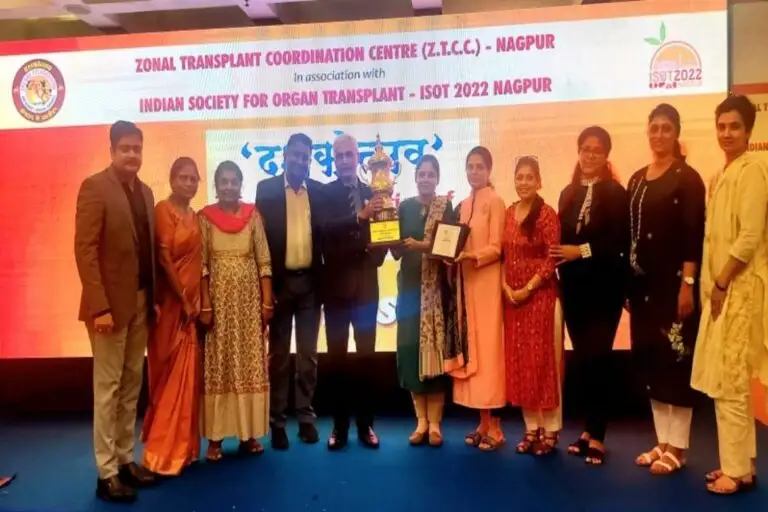
Zonal Transplant Coordination Committee (ZTCC), and ISOT Nagpur recently celebrated a decade of the Organ Donation Program in Nagpur. In this event, Wockhardt Hospitals in Nagpur was acknowledged by the ZTCC officials for having the highest number of transplants in the region- (mention number) and their long and dedicated contribution to the field of Organ Donation in the region. Wockhardt Hospitals has been very active not just in performing organ transplants but also spreading awareness of its importance. Several dignitaries like Dr. Mahatme ex-MP, Dr.Vibhavari Dani – President ISOT Nagpur Zone, Dr. Sanjay Kolte – Secretary, and Dr. Amit Pasari – Treasurer were present at the event. Wockhardt Hospitals have done many transplant cases and has been the initiator of many new paradigms of Transplant in the region. They were the first to start the green corridor in the city.
World Spine Day: 16 October, 2024
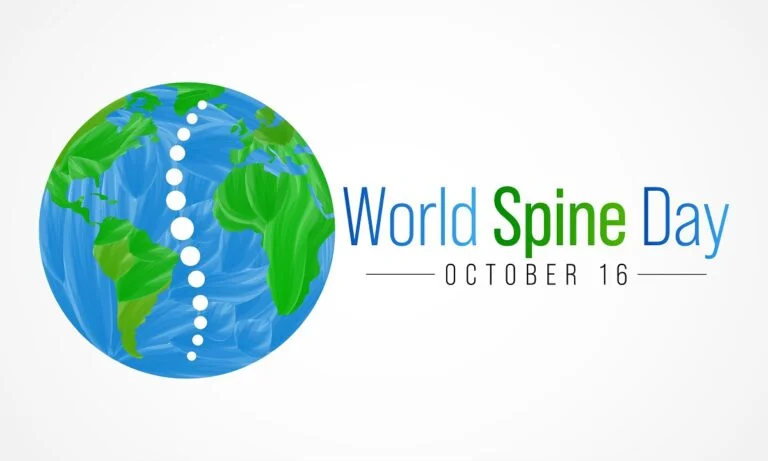
World Spine Day is observed annually on October 16 to educate the world about the importance of spine health and spread awareness about spinal injuries and diseases of the spine. The spine, also known as the backbone or vertebral column, protects the spinal cord of the human body and acts as the central support. The backbone connects different parts of the musculoskeletal system and helps one sit, stand, walk, twist, and bend. However, if one is not careful, and does not maintain a proper posture, their spine may become damaged. Back injuries and spinal cord conditions may also damage the backbone. How to Ensure a Healthy Spine? Yoga, proper exercise, and consumption of calcium-rich foods ensure a healthy and strong spine, according to experts. “Foods rich in calcium such as dairy products, soya, oranges, fish, and figs are good,” Dr. Mazda Turel, Neuro and Spine Surgeon, Wockhardt Hospitals, Mumbai Central, told ABP Live. Can Exercises Damage the Vertebral Column? Exercise performed in the correct manner will not damage the spine. “In a healthy spine care, no exercises damage the spine as long as they are done correctly and supervised. Yoga done correctly is good for the spine,” Dr. Turel said. Dr. Turel added that by using the right posture, regular exercise, the correct diet, and sleep, one can ensure a healthy spine. Being mobile is the key to a strong backbone. Foods and Lifestyle Habits that Damage the Spine Sitting in a prolonged position in a poor posture is bad for the spine, Dr. Turel said. Smoking is extremely bad and causes osteoporosis, he added. Intake of steroids is bad for the bones, and foods that have refined products are harmful. Different Diseases of the Spine Degenerative diseases such as spinal stenosis and slipped discs are common. “Tumors and infections can also affect the spine. Several congenital anomalies involve the spine.” Dr. Turel said. Through regular exercise and by being mobile, one can prevent spine diseases, Dr. Turel added. Dr. Mazda TurelConsultant Neuro and Spine SurgeonWockhardt Hospitals, Mumbai Central To book an appointment call: +918291101001 Source: https://news.abplive.com/science/world-spine-day-2022-yoga-calcium-rich-foods-ensure-a-healthy-spine-expert-says-1558383
Don’t let blood clots block your life! Keep life flowing!
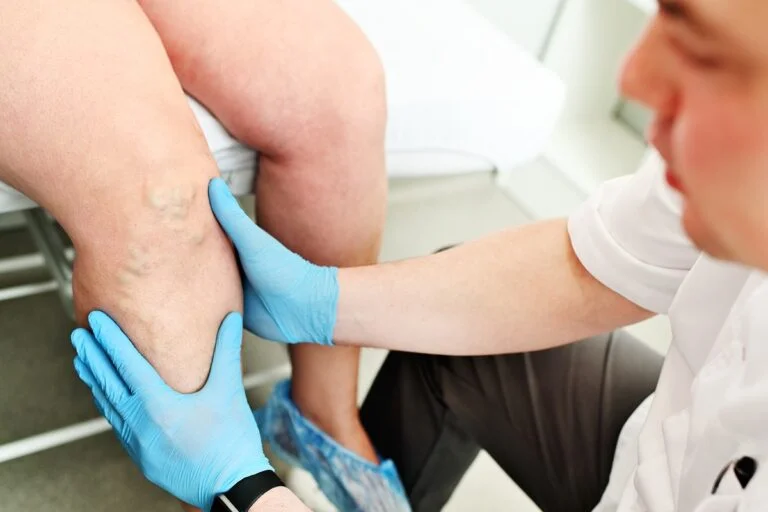
World Thrombosis Day is celebrated every year on the 13th of October. This year Wockhardt Hospitals in Nagpur emphasizes the need to be alert and recognize the early warning signs of thrombosis before it becomes worse. Early diagnosis and the right treatment can help us save many lives. According to recent reports, 1 in 4 people worldwide dies of thrombosis every year, which is much more than the deaths due to breast cancer, prostate cancer, and bike accidents. It is a leading cause of global death and disability. Thrombosis is a preventable underlying cause of the top three cardiovascular killers: heart attack, stroke, and venous thromboembolism (VTE) informed Dr. Gunjan Loney, Consultant- Haematology-Haemato-oncology. What causes thrombosis? Anything that prevents your blood from flowing properly might cause a blood clot. Thrombosis is the formation of a clot in the artery or vein. A clot blocks normal blood flow and can get detached and travel to an organ. The disease has come under the spotlight in the past couple of years owing to it being one of the side effects of COVID-19. In rare cases, people have developed the condition after receiving COVID vaccines as well. What are the Symptoms of thrombosis? Deep vein thrombosis (DVT) – pain, swelling, tenderness redness, discoloration, and warmth in the leg, particularly in the calf.Lungs – Pulmonary embolism (PE) – shortness of breath, chest pain, rapid heart rate, lightheadedness or passing out, coughing up blood.Heart – Heart attackBrain – Stroke What are the Risk factors? For females: What are the preventive measures? Dr. Gunjan LoneyConsultant: Haematology, Haemato-oncologyWockhardt Hospitals, Nagpur To book an appointment call: +918605604444 Source: https://thelivenagpur.com/2022/10/12/dont-let-blood-clots-block-your-life-keep-life-flowing/














